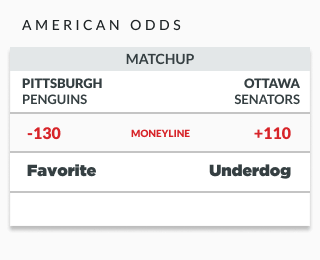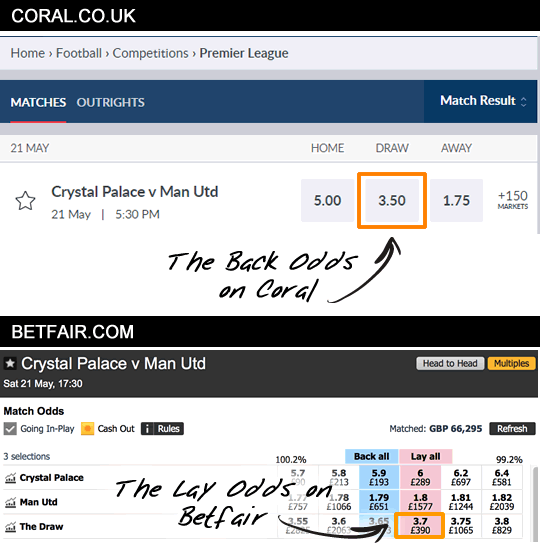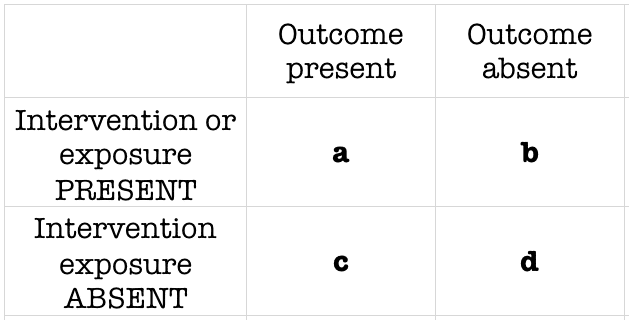What Do Odds Of Mean
- While the Approval Odds in the example are “Excellent,” other possibilities you might see include “Very Good,” “Good,” “Fair” and “Poor.” But what, exactly, do they mean? Approval Odds serve as guidelines regarding the likelihood you’ll be approved for a specific credit card.
- 4- individual and family services (+18,000). Employment in health care and social assistance is down by 909,000 over the year. Retail trade added 41,000 jobs in February. Job growth was widespread in the industry, with the large.
We think it's important for you to understand how we make money. It's pretty simple, actually. The offers for financial products you see on our platform come from companies who pay us. The money we make helps us give you access to free credit scores and reports and helps us create our other great tools and educational materials.
Compensation may factor into how and where products appear on our platform (and in what order). But since we generally make money when you find an offer you like and get, we try to show you offers we think are a good match for you. That's why we provide features like your Approval Odds and savings estimates.
This does mean making sure data is saved on a cloud and waiting for everything to download after. Unfortunately, if even this doesn’t do the trick it means there’s an issue with the servers.
Of course, the offers on our platform don't represent all financial products out there, but our goal is to show you as many great options as we can.

If you’re getting ready to apply for a new credit card, you might be concerned about whether you’ll actually be approved.
Nobody likes feeling rejected, but there’s more to it than that.
Applying for a credit card usually results in the issuer making a hard inquiry on your credit, which could lower your credit scores by a few points and stay on your credit reports for up to two years.
You don’t want too many hard inquiries clogging up your credit reports, so it’s important to understand your chances of being approved for a particular card. That’s where Credit Karma Approval Odds can help.
What are Credit Karma Approval Odds?
When you’re logged into the Credit Karma app and searching for a new credit card, you might notice a box directly below each card image. It says “Credit Karma’s take for this offer” at the top and looks like this:
While the Approval Odds in the example are “Excellent,” other possibilities you might see include “Very Good,” “Good,” “Fair” and “Poor.” But what, exactly, do they mean?
Approval Odds serve as guidelines regarding the likelihood you’ll be approved for a specific credit card. Everyone’s credit situation is different, so your odds might be different from those of other Credit Karma members.
Click on the Approval Odds info button, and you’ll see a pop-up message that explains how Credit Karma determines your unique Approval Odds.
“Credit Karma looks at how your credit profile compares to other Credit Karma members who were approved for this product or whether you meet certain criteria determined by the lender. Of course, there’s no such thing as a sure thing, but knowing whether your Approval Odds are Excellent, Very Good, Good, Fair or Poor may help you narrow down your choices.”
If you’re looking for a new credit card, these Approval Odds can certainly help you when you’re evaluating which one is the best fit for you.
Does getting rejected for a credit card hurt my credit?
When you apply for a credit card, the issuer usually checks your credit. This type of credit report inquiry is called a hard inquiry. Hard inquiries generally occur when a financial institution, such as a lender or credit card issuer, checks your credit after you’ve applied for any type of credit, such as a credit card, mortgage or auto loan.
Hard inquiries may have a negative impact on your credit scores. But there’s good news: Getting rejected or approved for a card has no impact on your credit scores.
Learn More: Pre-Approved, Pre-Selected, Pre-Qualified, and Credit Karma’s Approval OddsApproval Odds are guidelines – not guarantees
Even if your Approval Odds are “Excellent,” “Good” or “Very Good,” remember that the issuer — not Credit Karma — always has the final say in whether you’ll actually be approved.
Credit Karma compares your credit profile to the credit profiles of other members who were approved for the card to assess the likelihood that you’ll be approved, too.

Though this determination is based on member data, it’s not a guarantee that you’ll be approved. Everyone’s credit situation is unique, so there’s simply no way to make a perfect comparison between our members’ profiles.
“Credit card approval is a multifactor equation,” explains Alex Gerard, a personal finance and banking expert and the founder of CardsMix.com.
Some things a bank may take into account when deciding whether to approve your application include …
- Your percentage of on-time payments
- Your total number of accounts
- Total hard credit inquiries
- Number of 30-day delinquencies
Because of this, Gerard notes that it’s not uncommon for a person to be preapproved for a card (or have “Very Good” Approval Odds) and ultimately get denied.
We know it can be frustrating to get denied for a card after having “Good” Approval Odds on Credit Karma. You might think even it’s misleading or just plain wrong. That’s totally understandable — but you should know there’s more to it.
“While having this context can be extremely helpful to users, it’s not always 100% accurate because it’s an estimate, based on Credit Karma’s analysis, rather than coming directly from the credit card company,” says Roger Ma, CFP® and founder of LifeLaidOut.com.
What Do Odds Of 8/11 Mean

Why ‘Excellent,’ ‘Good’ or ‘Very Good’ Approval Odds don’t guarantee approval
What Do Odds Mean In Ufc
Credit Karma is all about empowering people with accurate, transparent information — it’s baked into our mission.
Though Approval Odds use statistical analysis to determine the likelihood of approval, it’s important to understand some of the other factors at play.
First, there are several different credit score models out there. Credit Karma doesn’t actually calculate your credit score — the scores and credit report information you see on our site come from TransUnion and Equifax, two of the three major credit bureaus.
Credit Karma provides VantageScore 3.0 credit scores that are calculated by TransUnion and Equifax. But a credit card company will likely use a different scoring model altogether.
There can be variation among credit scoring models and even among credit bureaus. Many different factors could be considered when calculating a score, and each model may weigh credit factors differently.

But though your scores may vary, they’re all based on information in your credit reports. So focusing on what’s in your reports could help you build your credit overall.
These scores can help you figure out where you stand, but it’s ultimately the credit card company that will look at all your risk factors and determine if you’re a qualified candidate for its product.

What to do if you aren’t approved
If your application for a new credit card gets denied, don’t panic. Though the hard inquiry necessary for the application may affect your credit scores, getting denied doesn’t further hurt them. The impact on your credit may be small and can improve over time.
Secondly, check your credit reports to make sure all the information is correct. If not, you’ll want to dispute any errors.
On top of that, make sure your credit utilization — the amount of available credit you use — is below 30%. You’ll also want to verify your payments are on-time and paid in full to keep your credit in good shape.
If you really think the credit card company made a mistake in rejecting you, consider calling the company’s reconsideration line to make your case. There’s no guarantee this will work, but it can’t hurt to try.
Bottom line
While by no means the final say, Credit Karma Approval Odds should be used as a guideline for the types of credit cards that may be a good fit for you.
Ultimately, your best bet is to be a responsible credit user by making on-time payments and keeping your balances low. Building your credit is one of the best ways to increase the approval odds in your favor.